With three new shorts, Netflix bets on tomorrow’s breakout filmmakers today
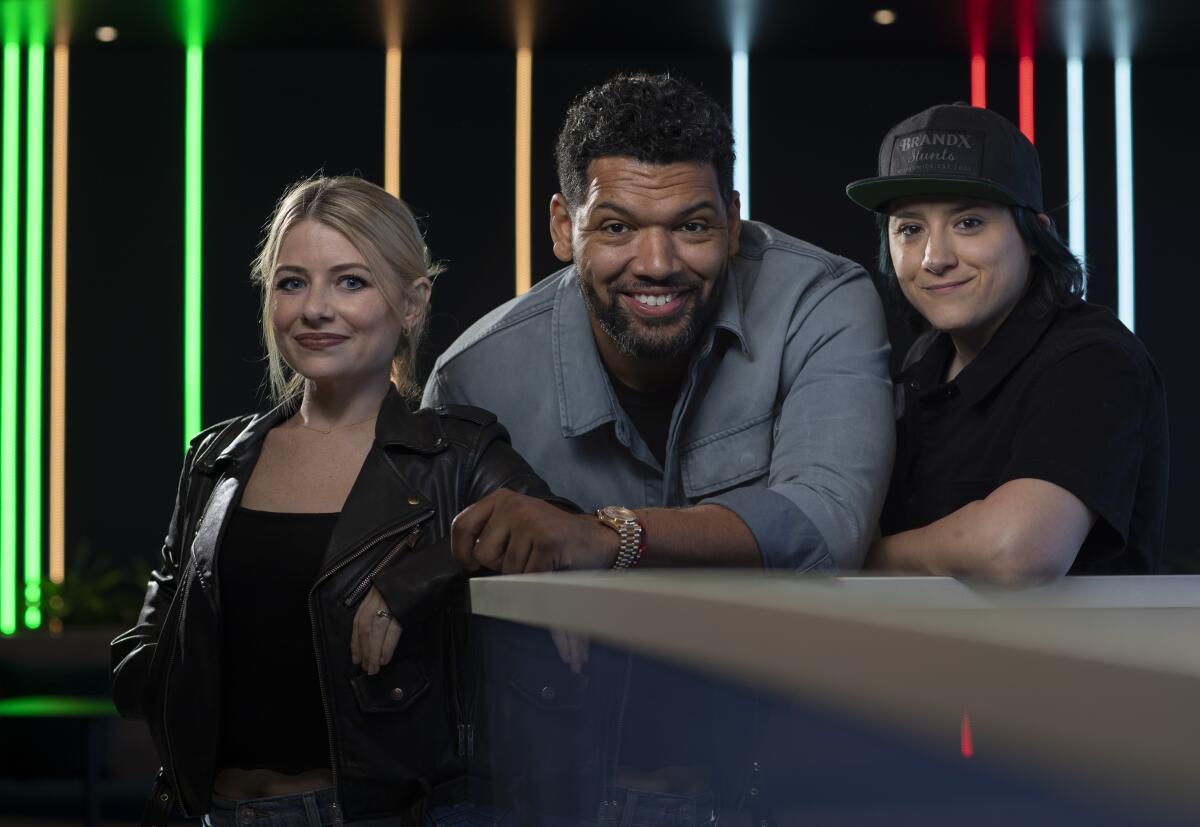
Chicago visual artist Hebru Brantley had already made a name for himself with in-demand works around original characters including Flyboy and Lil Mama, collected by art lovers around the world, when last year he jumped at the chance to expand his comics-, anime- and pop culture-inspired storytelling into film.
Impressed by the success of Stefon Bristol’s Independent Spirit Award-winning debut sci-fi feature “See You Yesterday,” Netflix was quietly combing its networks to build a first-of-its-kind genre accelerator film program with directors similarly ready to make their first move into studio filmmaking.
So Brantley pitched three ideas, the last of which he’d originally intended to make on his own with his daughter using puppets — “something to do during the pandemic,” as he describes it. Soon he was working with Jim Henson’s Creature Shop directing an original fantasy adventure inspired by a spooky encounter he’d had in his backyard.
Bursting with action, thrills and new creatures brought to life from Brantley’s expansive imagination with VFX and practical effects, “Erax” stars Jasmine Cephas-Jones (“Blindspotting”) and Genesis White in a larger-than-life modern fable (co-written by Henry G.M. Jones) about a clever young girl, her flighty aunt and a mysterious and magical book.
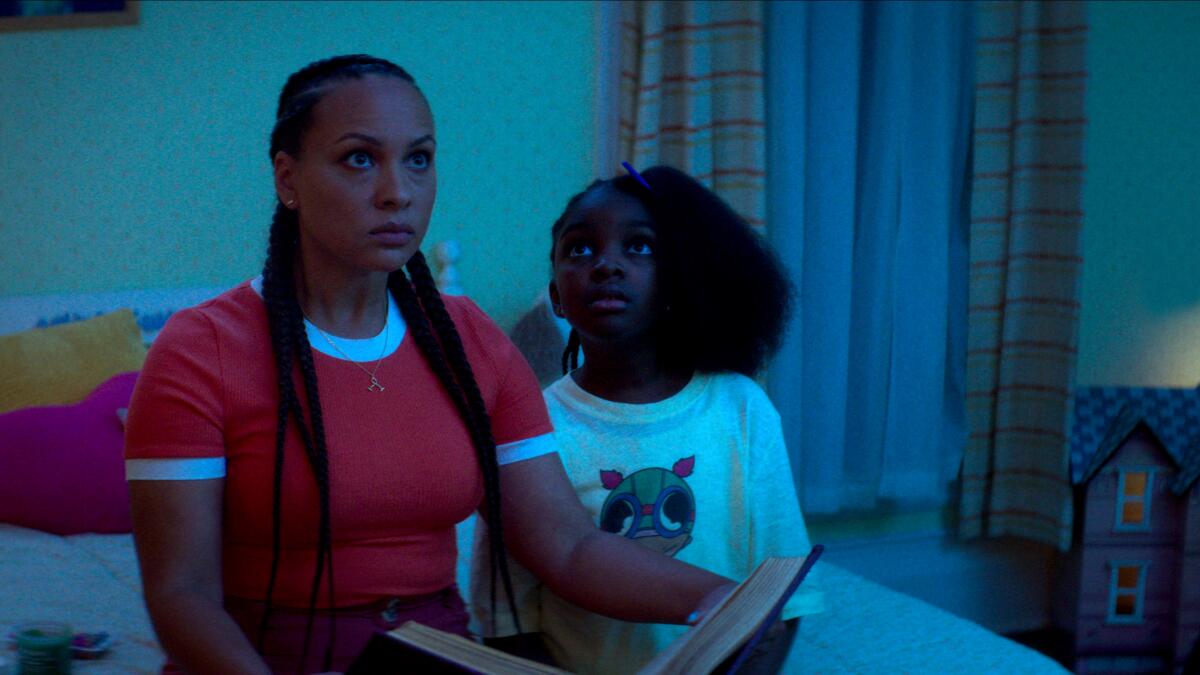
It’s one of three short films that premiered globally on Feb. 17 as part of Netflix’s inaugural Emerging Filmmaker Initiative, spotlighting marquee genre directors in the making. The others are WWII period drama-thriller “Forgive Us Our Trespasses” from Ashley Eakin and the kinetic action tale “Heart Shot” from Marielle Woods.
“I jokingly say it’s like film school but [multiplied by 1,000], because the process was pretty fast,” said Brantley, who studied film before starting his career in multimedia arts. To him, “Erax,” shot over five days last summer in Altadena, was valuable prep for directing his eventual first feature. “It gives you a sense of what that real film world is going to be like and prepares you in that way. You don’t feel like they just threw you into the deep end and said, ‘You figure it out.’”
Lending support to Brantley as a mentor in the postproduction process was “Men in Black” director Barry Sonnenfeld, who was the showrunner for three seasons of Netflix’s “A Series of Unfortunate Events” and was already a fan of Brantley’s work.
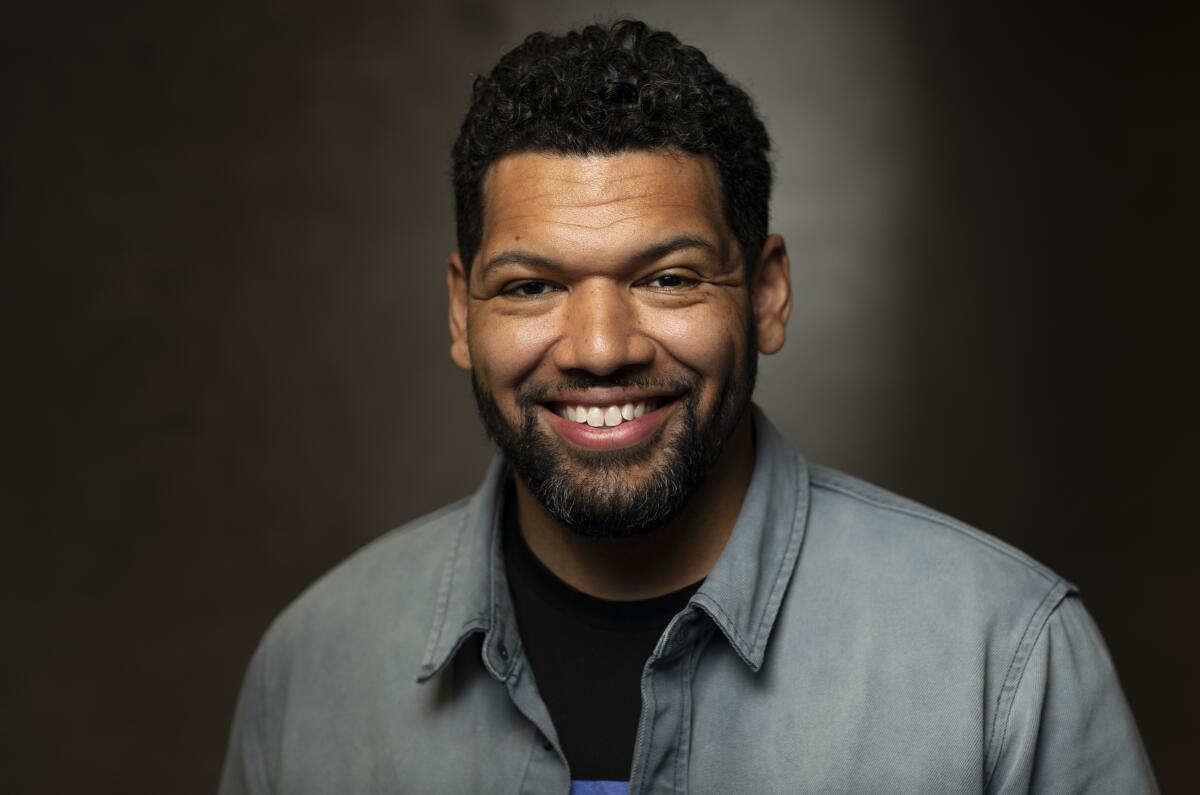
”To give emerging filmmakers the ability and budget to actually make a film with a real crew, with a real sound mix, etc., is a great concept,” said Sonnenfeld. He offered feedback on balancing tone and tension in what he considers the most difficult genre — action-adventure-comedy — which he says Brantley pulled off “quite nicely”: “I think he could direct any big-budget film he wanted to.”
To most early-career filmmakers, jumping into the director’s chair with a full arsenal of studio resources and support from development through casting, production, postproduction and marketing is a rare and coveted opportunity. While Netflix declined to comment on budget size, all three filmmakers had previous experience helming their own independent short films and described being given ample resources, guidance and creative control on their EFI projects.
After working in the industry for more than a decade, Eakin had seen the studio process up close. As assistant to director Jon M. Chu on “Crazy Rich Asians” she’d also witnessed the impact that film had on audiences who felt otherwise unrepresented onscreen.
“I never see people onscreen with different bodies, and that was a huge issue for me growing up and dealing with internalized ableism,” said Eakin, a writer-director with a physical disability whose short films and upcoming projects, including the award-winning “Single,” are focused on stories about the disabled community.
Her “Forgive Us Our Trespasses,” about a boy (Knox Gibson) in 1939 Germany targeted by Hitler’s Aktion T4 campaign because of his disability, was the first in the Netflix EFI program to go into production. Co-written with husband Shawn Lovering near the start of the pandemic and filmed with ambitious period detail in 2020 in wintry Ontario, Canada, it highlights underdiscussed horrors of the past but feels eerily relevant to how vulnerable communities are treated amid COVID-19.
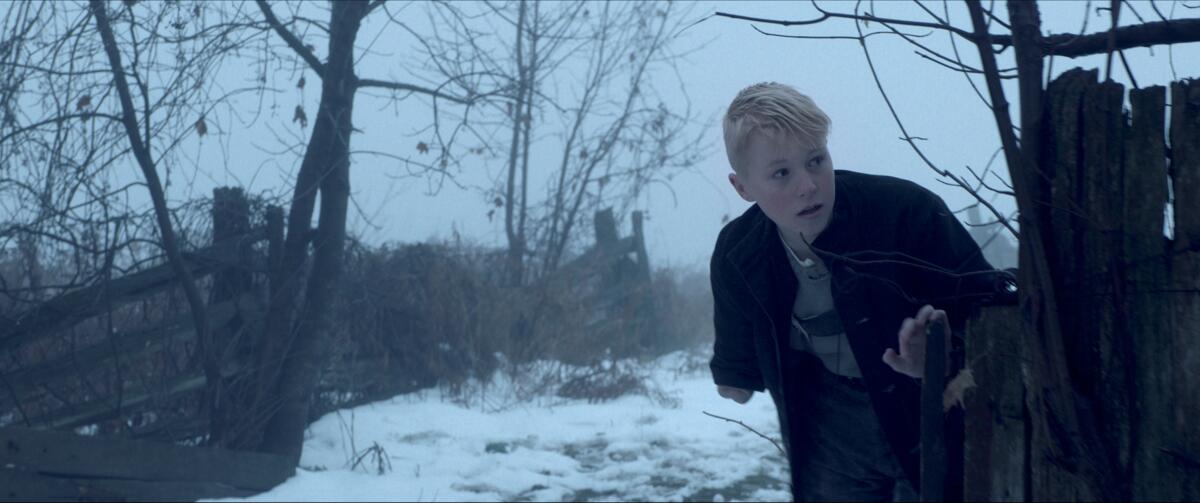
Matched by Netflix with an industry mentor, Eakin requested Oscar winner Ron Howard, who made 2020’s “Hillbilly Elegy” for the streamer. He gave notes in areas such as script drafts and directing young actors. But, as Howard told The Times, “Ashley Eakin didn’t really need my, or any, mentoring.
“From the first conversation, I felt like she had command of this subject. When I began seeing some dailies I felt like she was already a seasoned filmmaker,” said Howard, who started his own directing career helming short films. “She staged it beautifully but kept reaching for nuances, and also in a very concise, demanding format, because the short film format is like short story writing: Every second matters, just as every word choice or sentence matters in a short story.”
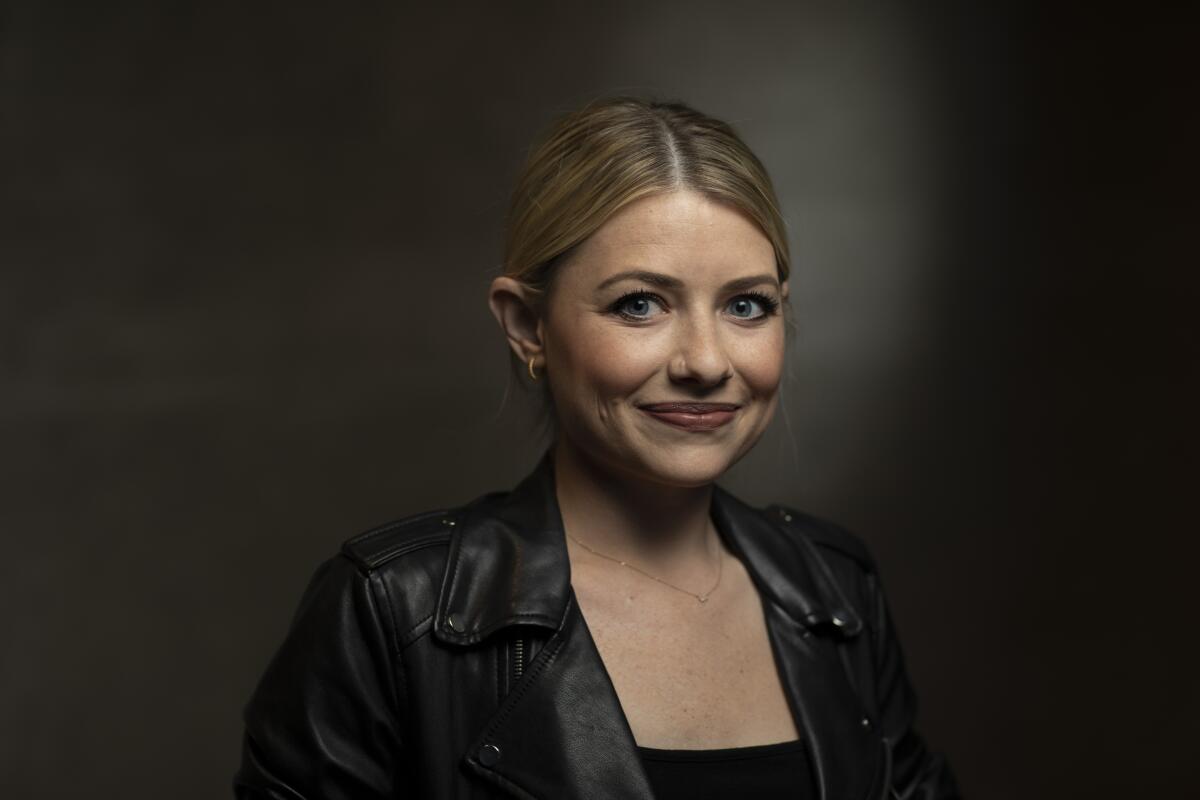
“Forgive Us Our Trespasses,” which blends quiet drama with harrowing physical sequences carried by a lead turn by young Australian actor Knox, helped Eakin land subsequent directing jobs for Disney+ and Apple. She now has various projects in development including a series based on “Single” for FX and a Gen Z tale set “in the world of disability,” with Netflix.
“Filmmakers, when you’re starting out, we’re clawing our way to make our name and to even get a short done,” said Eakin, who crowdfunded two of her previous short films. “Being able to have someone give you the resources and access is huge — you can really show what you’re capable of.”
The annual program, initially created by former Netflix executive Wayne Horton, is intended to identify and support artists “who are going to be making big, exciting commercial movies of all shapes and sizes over the years to come,” said Ian Bricke, VP of independent film at Netflix. The focus will remain on shorts in the action, sci-fi, horror and thriller genres to maximize audience potential on a global scale; the films also can easily serve as proof of concept for expansion.
“And if we can infuse those genres with fresh voices and perspectives, that’s really exciting,” said Bricke, who envisions growing the pilot program into an artist-forward community akin to the Sundance Labs.
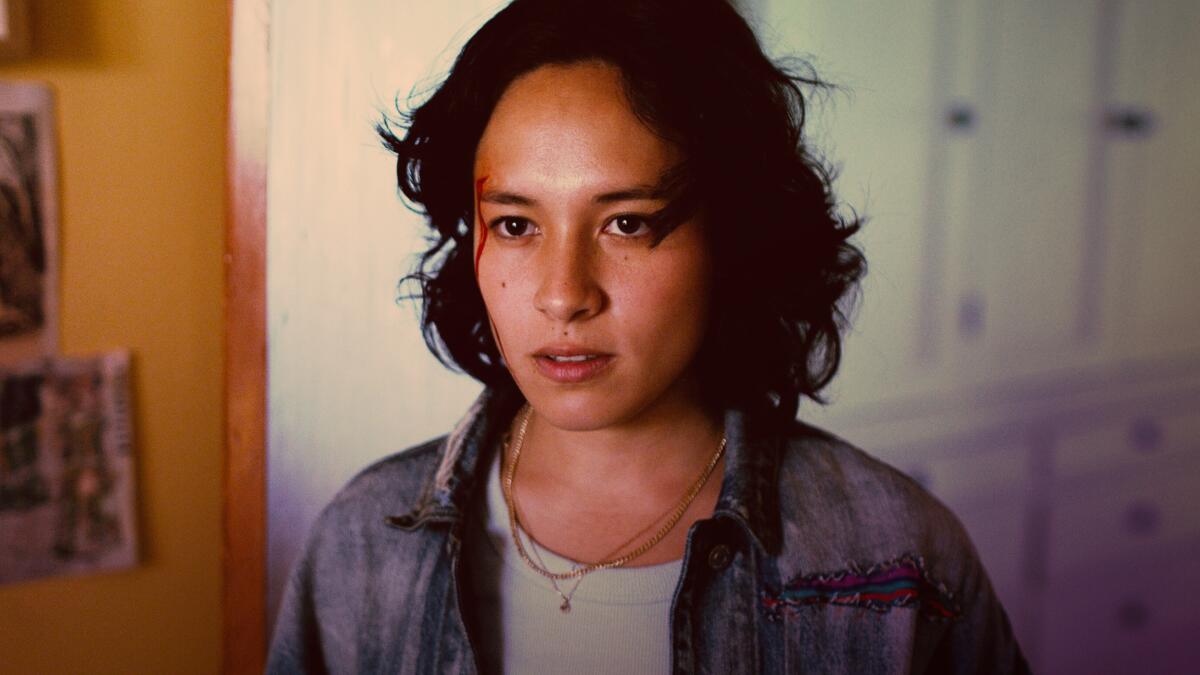
For the record:
11:54 a.m. Feb. 18, 2022An earlier version of this article incorrectly credited “Heart Shot” director Marielle Woods as writer-director.
“Heart Shot,” from director Woods, hits an undeniable sweet spot of surprise, suspense and tender romance, with newcomers Elena Heuzé and Nia Sondaya grounding the film as high school seniors in love. But it’s how their star-crossed relationship saga introduces an exciting new queer action hero that makes the film feel particularly ready-made for the feature treatment.
“I have a mission to create stories around diverse action protagonists that we’ve seen far fewer of,” said Woods, whose sights are set on helming big-budget action films. “I want to see more action where it’s not a white man in the lead, that’s inclusive of queer people, people of color, people with disabilities — we can all kick ass.”
A lifelong action lover who spent her early career working in reality TV, Woods broke into action by cold-calling veteran stunt coordinator Spiro Razatos, whom she then shadowed on the set of “Fast & Furious 6.” Stints in the stunt departments of “Baby Driver,” “John Wick: Chapter 2” and “Westworld” followed.
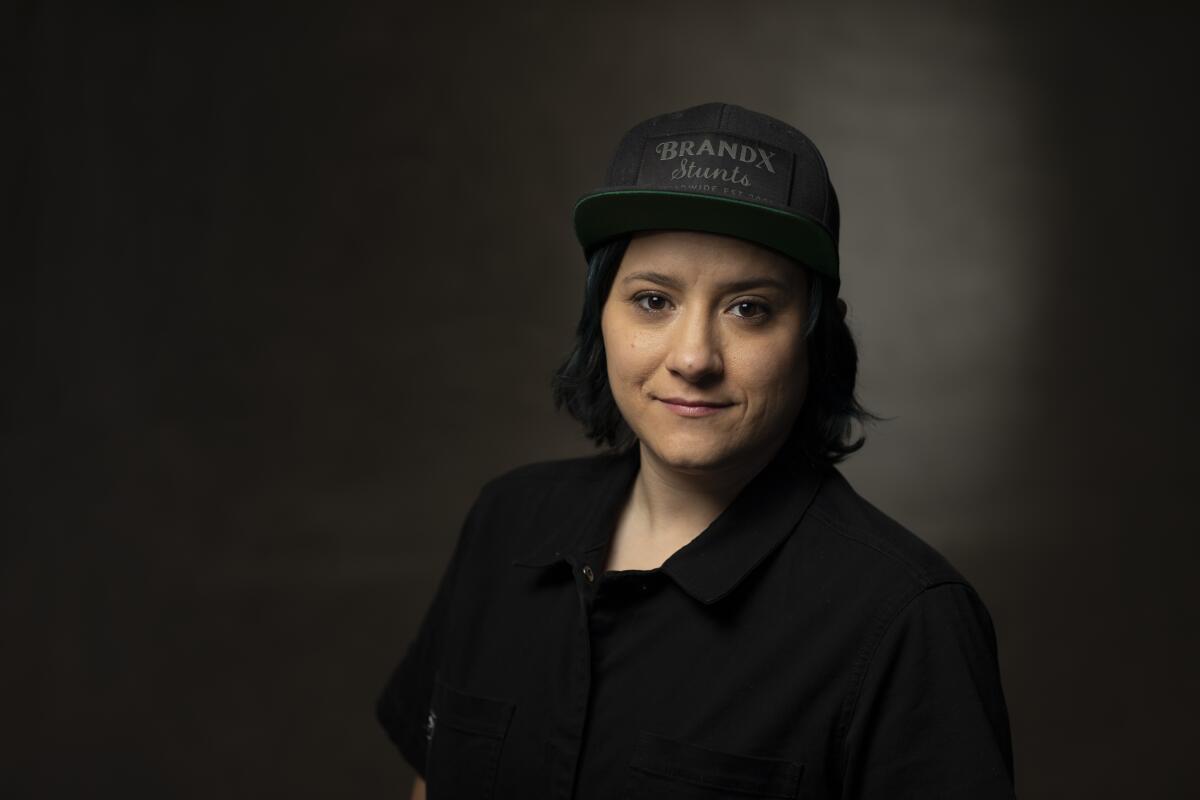
Coming off her crowdfunded indie short “Spin,” Woods brought on writer Lauren Ludwig to pen “Heart Shot” for Netflix, inspired by the life-and-death stakes of young love. They now have a feature pitch diving deeper into the world of “Heart Shot,” with themes and ideas that crystallized during the making of the short, which filmed in Eagle Rock last year after Woods returned from directing episodes of “Cobra Kai.”
“What this movie for me, I often joke, is: Imagine Terrence Malick and Andrea Arnold had a baby, and that baby wanted to direct a queer teen action romance,” said Woods, who credited the Netflix program with freeing her to focus solely on the creative vision of the film. “It was just an exceptionally rewarding process.”
As for the now L.A.-based Brantley, whose media company Angry Hero is developing several projects including a film adaptation of his Flyboy character, the experience left him with greater confidence as a director.
He envisions “Erax” as the potential cold open to its own full-length film and, like Eakin and Woods, also aims to tell stories from perspectives long ignored in large-scale genre cinema.
“Seeing ‘monster in the house,’ creature feature, popcorn horror films set in a place that looks and feels very familiar to where I come from, where I grew up — and has people of color that are far more relatable than some of the stuff that I grew up watching — is the thing that really excites me,” said Brantley.
Plans to develop and produce a second wave of EFI shorts are underway.
More to Read
Only good movies
Get the Indie Focus newsletter, Mark Olsen's weekly guide to the world of cinema.
You may occasionally receive promotional content from the Los Angeles Times.











